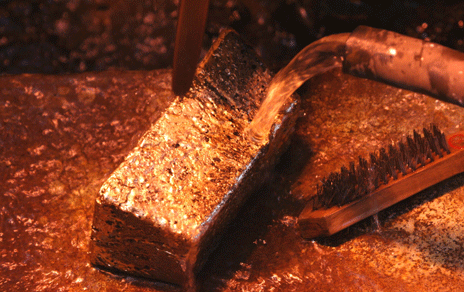China Copper, one of the country’s leading producers of the metal, wants to acquire overseas mineral resources amid tight mined copper supply and rising demand, the company’s chairman told Reuters on Monday.
A lack of rich copper resources at home has driven Chinese companies to hunt elsewhere, with an unexpected supply deficit this year adding to the impetus.
“We hope to cooperate with countries and companies globally to acquire a number of near-production, at-production mineral resources with good quality, large reserves and potential,” Xu Bo wrote in response to Reuters‘ questions.
The company will step up cooperation on risky projects with a low exploration rate and great potential, wrote Xu, a delegate of the National People’s Congress at the annual meeting of parliament in Beijing.
China Copper holds the Toromocho Copper mine in central Peru, via its parent company Aluminum Corporation of China (Chalco), the state-owned metal giant.
Smelters in China, the world’s top refined copper producer, were hit by tightening raw material supplies after the closure of the big Cobre Panama mine late last year.
Xu acknowledged the shortages, saying they were a reflection of the still strong demand for copper in China.
There is fast growing demand from the electric vehicle and renewable energy sectors for the metal, which is also widely used in power, transportation and construction.
A few smelters have taken measures amid the shortage of raw materials, Xu wrote, without elaborating.
A state-backed industry association in January advised Chinese smelters to curb their output, bring forward maintenance and postpone new projects.
Over the longer term, the copper smelting industry needs more collaboration, better technology research and market analysis to ensure sustainable development, Xu wrote.
The rapid expansion of Chinese smelters pushed the country’s refined copper output up 13.5% last year to a record high of 13 million metric tons.
Imports of copper ore and concentrate were 9% higher than a year earlier at 27.5 million tons, also a record high, according to official data.
(By Siyi Liu and Colleen Howe; Editing by Kirsten Donovan)
